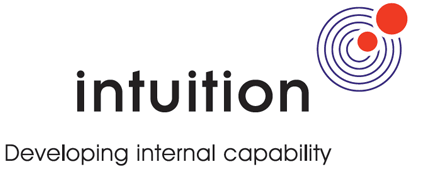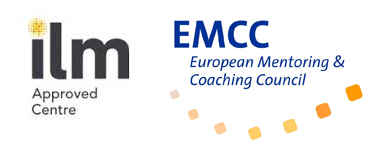Background
Over the past three years we have been engaged in a number of assignments with organisations facing significant and substantial change. These changes have been triggered by a number of different factors including changes in senior personnel, change of ownership, organisational restructuring and changes in marketplace conditions.
Our approach has been to address three fundamental factors through which other development requirements are established
The common purpose for the team or organisation, this has included supporting the leadership of an organisation to define its vision for the organisation.
- The means and mode of communication between team members, other teams inside and outside the organisation
- The setting of meaningful objectives at individual, team and organisational levels with the formation of an effective way to measure progress and further development
Here are three examples of work we have completed.
Case 1
The Managing Director of a 250 person construction consultancy business operating nationwide with some interests overseas, sought 1:1 coaching support as he took on his new leadership role, following the decision of the Chairman to retire from the business within an eighteen month period. He had previously been a Divisional Director and a member of the board. The business had recently changed to plc status having previously been a professional partnership.
The MD sought to address the significant changes in expectations of the organisation and its way of operating both at an operational level and in terms of attitude at senior board level supporting the change of mindset required following the change of status.
At about this time a global competitor approached the organisation with an expression of interest in acquiring the business.
The coaching intervention supported the MD as he faced up to the challenges of his new role, his own personal development and the new experience of negotiating through the sale of the business and the subsequent organisational and cultural changes this prompted.
Specifically he addressed
- Defining the vision for the business
- Clarifying roles at all levels in the business
- Defining what was meant by ‘high performance’
- Supporting skills assessment at all levels
- Re-structuring the organisation
- Maintaining and developing good communication through the business
- Keeping a focus on business performance throughout the process
Case 2
A rapidly growing recruitment company sought to develop a coaching philosophy throughout the business. The majority of the employees being customer service orientated the predominant management style was coaching. The focus for the intervention was based on the imperative of a substantial increase in performance on volumes of business throughput.
The growth opportunities foreseen by this international business services group highlighted an urgent need to fast track senior managers towards newly created directorship roles.
Our assignment was with one division of this Group. The Divisional MD & his two senior managers engaged in an introductory workshop that enabled them to establish the ground rules, responsibilities and aspirations for the team, collectively and individually. It also presented the principles of a core coaching philosophy and introduced a range of coaching models.
Following the objective setting session involving the coachee, manager and coach, each coachee embarked on a six month one to one coaching programme (fortnightly sessions alternating between face to face & telephone contact facilitated by two CoEC coaches) to address their individual development needs in line with the business strategy. Progress reviews at the end of each quarter revealed significant gains made by each individual, the leadership team & the whole division. The Senior Managers were successful in achieving promotion to Associate Directorship status.
The confident leadership & greatly improved communication throughout the Division drove operating performance to record levels of sales revenue. These remarkable results of accelerated learning & performance enhancement supported by the initial coaching programme led to an extension for a further six months. The two other divisions in the Group needed little further evidence or encouragement to engage with coaching support for their senior management & two more Associate Directors (designate) joined the six-month programme.
Given the impact in terms of increased pressure of work from the Group’s relentless demand for revenue growth, the CEO was keen to offer personal development support to the team of Corporate Services managers (comprising specialists in finance, legal, human resources, IT & purchasing). A coaching programme designed in collaboration with the CEO was launched and delivered as follows:
An introductory team workshop
- A programme of six monthly confidential one to one coaching sessions including a mid term & end of programme review.
- A skills workshop focused on improving personal impact through effective communication with particular emphasis on presentation delivery.
- A team plenary session to assess & share individual & team performance enhancement achieved since the initial workshop.
Feedback from this team has emphasized the importance of transferring new learning into the workplace and how coaching has supported that transfer. They experienced growth of individual confidence, particularly with regard to effective communication, a higher group-wide profile & greater integration & influence in the business.
Over the period of the coaching interventions, Group turnover has increased by 60% and the huge challenge of constant change has been met with confidence. Whilst it would be disingenuous to suggest that coaching could claim all the credit for such progress, there is an explicit acknowledgement by the Board that coaching support has been a key contributor to the Group’s continuing success.
Case 3
A leading PCT saw the development of a Coaching Culture and Coaching Skills as a
key element within their Strategic Organisational Development Programme, They recognised that clear commitment to coaching and coaching skills development at the highest level within the PCT was a critical success factor in this cultural redirection.
The core competencies of coaching are key ingredients within the NHS Leadership Qualities Framework and the Trust aim to build a team of managers/clinicians equipped to provide coaching to staff groups across the PCT. The PCT are determined to achieve sustainable organisational
improvements and are measuring and reporting upon progress regularly.
The programme was jointly designed by the PCT and In Tuition to meet their specific requirements. The Executive Management Team took part in a two day Coaching Skills Workshop exploring the core skills of coaching and their application within the organisation.
The programme of Coaching was jointly developed with the PCT to meet their specific requirements. They chose to run a 2 day Coaching Skills Workshop for the Executive team, their Senior and Middle Managers and two Directors from Local Council Authorities. The participants used a range of activities based around exploring the core skills of Coaching and their application within the organisation. These included Listening Skills, Questioning Skills, Goal setting and achievement and Alignment of organisational and personal values and beliefs.
The Managers and Executives had ample opportunity to apply their new learning through practical exercises in a risk free environment, using a range of proven coaching models. All participants in the workshop gained significantly from the experience, not only in developing their personal skill sets, they also benefited through working closely with their colleagues addressing development issues they were experiencing.


